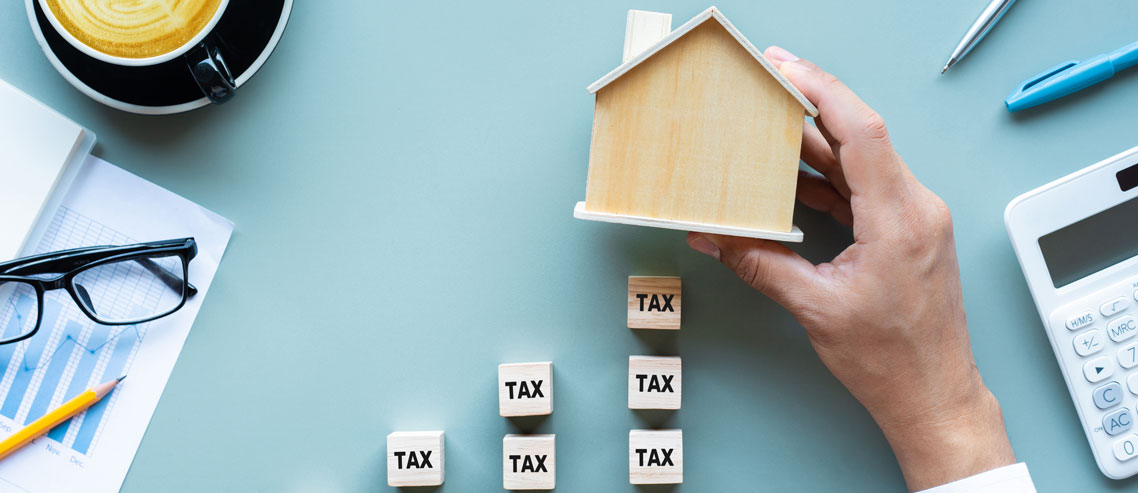Taxes when selling a property in the UK

Please be advised that the information in this article regarding QNUPS and IHT is no longer accurate due to the recent changes announced in the UK Budget. Starting in April 2025, the regulations will have significant implications that may affect your understanding of these topics. We encourage you to stay informed and consult with a Soteria Trusts expert to navigate these changes effectively.
Taxes associated with UK property ownership are plenty and can be quite complicated. Let’s take for example taxes you need to pay when you are selling your property in the UK. Do you need to pay any taxes, and if yes – which ones? There are two UK property taxes – capital gains tax and stamp duty land tax – that are usually associated with selling and buying a property in the United Kingdom.
Taxes when selling a residential property in the UK
Do you pay Capital Gains Tax when you sell a property in the UK?
The answer is: it depends. Typically you don’t pay capital gains tax when you sell your home.
Capital gains tax doesn’t apply to your “primary residence”, which is the house or apartment where you live. So if you are selling your only house, in which you are/were living, there will be no taxes when you sell it.
Capital gains tax on investment properties
However, if you own more than one property, for example, a house you are living in and an investment property, and you want to sell that investment property, any gains you have made since 2015 are liable to capital gains tax. To avoid late penalty fees, the tax should be paid to HMRC within 60 days of disposing of the asset.
Capital gains tax on the property is calculated on the amount of capital gained – or how much your property has gone up in value since you first bought it, or if you have owned it since before 2015, on gains made from April 2015 when the rules last changed. Normally, capital gains tax on the property is either 18% or 28 % of the gain – depending on further calculations explained here.
There is plenty you can deduct from the sale of your property, such as estate agent fees, solicitors fees, and the cost of any improvements so it’s a good idea to check with your accountant or HMRC directly to ensure your tax calculations are correct.
Do you pay income tax when selling your property?
No, there is no income tax payable on the sale of your property in the United Kingdom.
Do you pay stamp duty when you sell a house?
No, it is always the buyer who pays the Stamp Duty Land Tax in the UK.
Selling a house to buy a house – taxes
Usually, people sell one house to get funds for another purpose. Sometimes, it is a part of their education funding strategy, other times – they may be forced to sell inherited property to pay the Inheritance Tax bill.
However, in most cases, people sell their houses so they can access the funds needed to purchase another property.
If that’s the case, then one of the biggest taxes you need to factor into your budget is the Stamp Duty Land Tax. Stamp Duty Land Tax is calculated based on the value of the home, so it can take up a significant amount of your budget.
Stamp Duty Land Tax (SDLT) rates:
| Property or lease premium or transfer value | SDLT rate |
| Up to £125,000 | Zero |
| The next £125,000 (the portion from £125,001 to £250,000) | 2% |
| The next £675,000 (the portion from £250,001 to £925,000) | 5% |
| The next £575,000 (the portion from £925,001 to £1.5 million) | 10% |
| The remaining amount (the portion above £1.5 million) | 12% |
SDLT applies to property purchases if they’re over £125,000, or £300,000 for first-time buyers. However, if you’re buying a second home, you’ll be subject to a 3% surcharge on top of the normal SDLT. If you’re an overseas buyer there is a further 2% surcharge so if you buy second or more properties whilst living abroad, you will pay an additional 5% making the top rate 17%! Moreover, if a property is left to you in a will, instead of paying Stamp Duty on inherited property, you pay Inheritance Tax.
Related reading: How to avoid Inheritance Tax on Property?
Other UK property taxes
This part is especially important for buy-to-let landlords, as it summarises the top five UK property taxes. Other than already mentioned Capital Gains Tax and Stamp Duty Land Tax, UK property owners may be liable to the following taxes:
Property Income Tax – from 20 – 45% per annum of property rental income.
Annual Tax on Enveloped Dwellings (ATED) – from £3,700 – £236,250 per annum. ATED is payable mainly by companies that own UK residential property valued at more than £500,000.
Inheritance Tax – charged at 40% of the value of the net estate over Nil Rate Bands (NRB’s) of £325,000 for singles & £650,000 for couples.
Soteria Trusts’s Asset Protection Service
Soteria Trusts offers a specialist service designed to reduce or mitigate each of the five main taxes that are associated with UK property ownership. Contact us today to learn more about how proper structuring or restructuring of your UK properties, and in fact, other assets, can save you thousands of £££ of taxes, not just in the future (IHT), but also today.